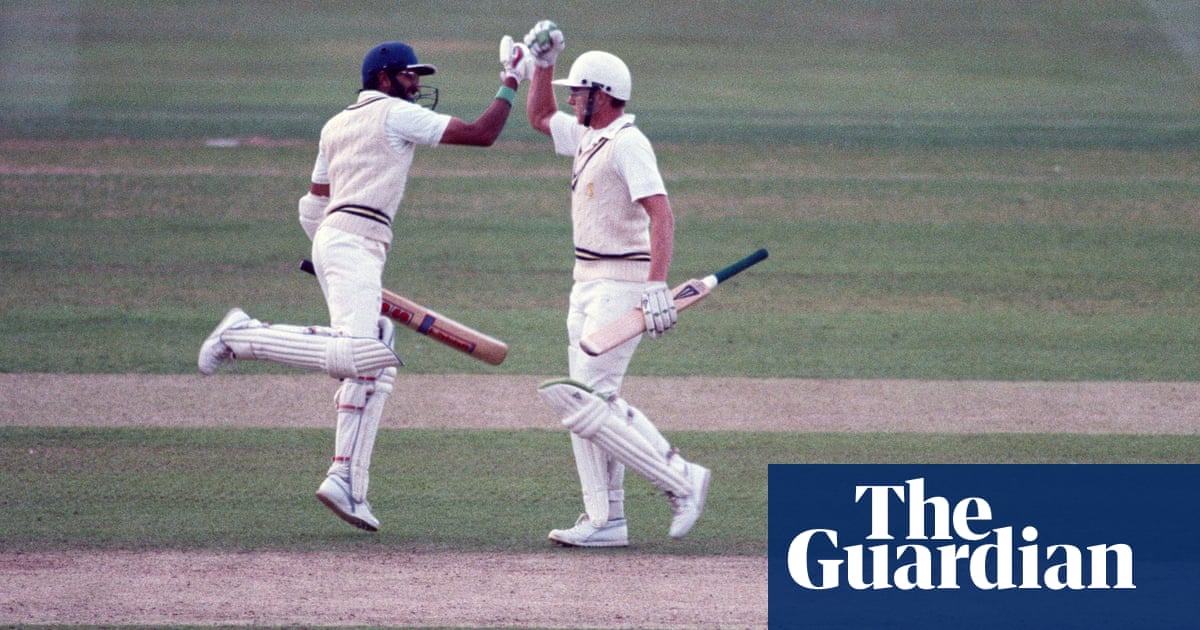The Bloke Who Hit the Six: How Warwickshire's 1989 NatWest Trophy Triumph Transformed the Game

Six balls to go. Warwickshire need 10 runs to win. The sun is setting rapidly on Lord's, casting long shadows on the hallowed turf as the 1989 NatWest Trophy final reaches its thrilling climax.
A sea of anxious Warwickshire supporters, eager to witness their side lift their first knockout trophy since 1968, watch nervously as the tension mounts. Ten runs to win seemed a mere formality, but with the light fading and the skilled Simon Hughes, a key bowler for Middlesex, holding the ball, it was anything but.
Neil Smith, a promising but inexperienced all-rounder, faced Hughes with a simple instruction ringing in his ears: "Hit it!" The 22-year-old, armed with his Duncan Fearnley blade, stepped back and unleashed a mighty swing. The ball soared high into the fading light, clearing Hughes' head and landing amidst a cacophony of jubilant Warwickshire supporters. "WARWICKSHIRE, LA, LA, LA!" erupted from the stands, echoing the exhilaration of the moment.
"Footwork not out of the coaching book," remarked commentator Jack Bannister, adding, "The ball nearly out of the ground." A six, in an era where a maximum was truly meaningful, had turned the tide of the match.
Hughes, a master of the slower ball, was left bewildered. He had successfully employed this tactic in the semi-final against Hampshire, but this time, Smith's audacious stroke had sent the ball soaring beyond his reach. The final over, seemingly within Middlesex's grasp, had transformed into a Warwickshire triumph.
Middlesex captain Mike Gatting confessed later that he would have wagered his benefit money on Warwickshire failing to chase down the target. "Gatting wasn't the only one who backed me to defend 10," chuckled Hughes, recalling that even Desmond Haynes, Middlesex's star batsman, had bet against Warwickshire. "He'd already spent his win bonus on car accessories back in Barbados. When I see him now, he says, 'Yozzer, you owe me five grand.'"
For Smith, the pressure of the moment was immense. "For a young player, it was quite a high-pressure situation," he admitted. "The cameras, the full house, it all added to the intensity."
The BBC anchorman, Tony Lewis, dismissed the final over as "the final slog," but Smith defended his unorthodox stroke, acknowledging the gamble he had taken. "Simon was one of the best bowlers of a slower ball," he explained. "Everyone has variations now, but back then, not many bowlers did. I gambled it was coming. I got a bit too far from it, which is why it looked so bloody awful."
The scorecard for the match, a low-scoring affair even for those times, reflected the sluggish pitch, where Middlesex's Norman Cowans and Warwickshire's Dermot Reeve bowled economical spells.
Smith's confidence was bolstered by his earlier performance, where he had scored a personal best of 160 in a Championship match. He even dismissed Haynes, who had ground out a half-century, with a crucial wicket that further fueled his confidence.
His crucial six, however, went beyond just securing victory for Warwickshire. It was a turning point in his career, marking a transformation from a player facing an uncertain future to a crucial cog in a team on the cusp of greatness.
"They said, 'We were going to let you go, but are prepared to offer another one-year contract,'" Smith recalled. "I said no to one year. They came back and offered two. That gave me the confidence to push on."
This victory proved to be a springboard for Warwickshire's future success. It ushered in a new era of positive cricket, marked by a relentless pursuit of improvement and a commitment to analysing every detail of the game.
Smith, now 57, is fondly remembered for that defining moment at Lord's, but he is also a proud nine or ten-time winner with Warwickshire and a World Cup participant.
The memories of that unforgettable day continue to shape the landscape of cricket. While Hughes may prefer to be remembered for other achievements, he acknowledges the impact of that single ball: "My whole career is identified with that one ball. You can't change it. I'd prefer if my career was remembered for something good, but at least it's remembered for something."
For Smith, his life, like his six at Lord's, is etched in cricket. The story of that summer's final, an unlikely victory, a defining moment for a young player, and a testament to the unpredictability of the game, remains a captivating tale for the ages.





